3. Some individual cases (and progresses)
3.1. Arsen
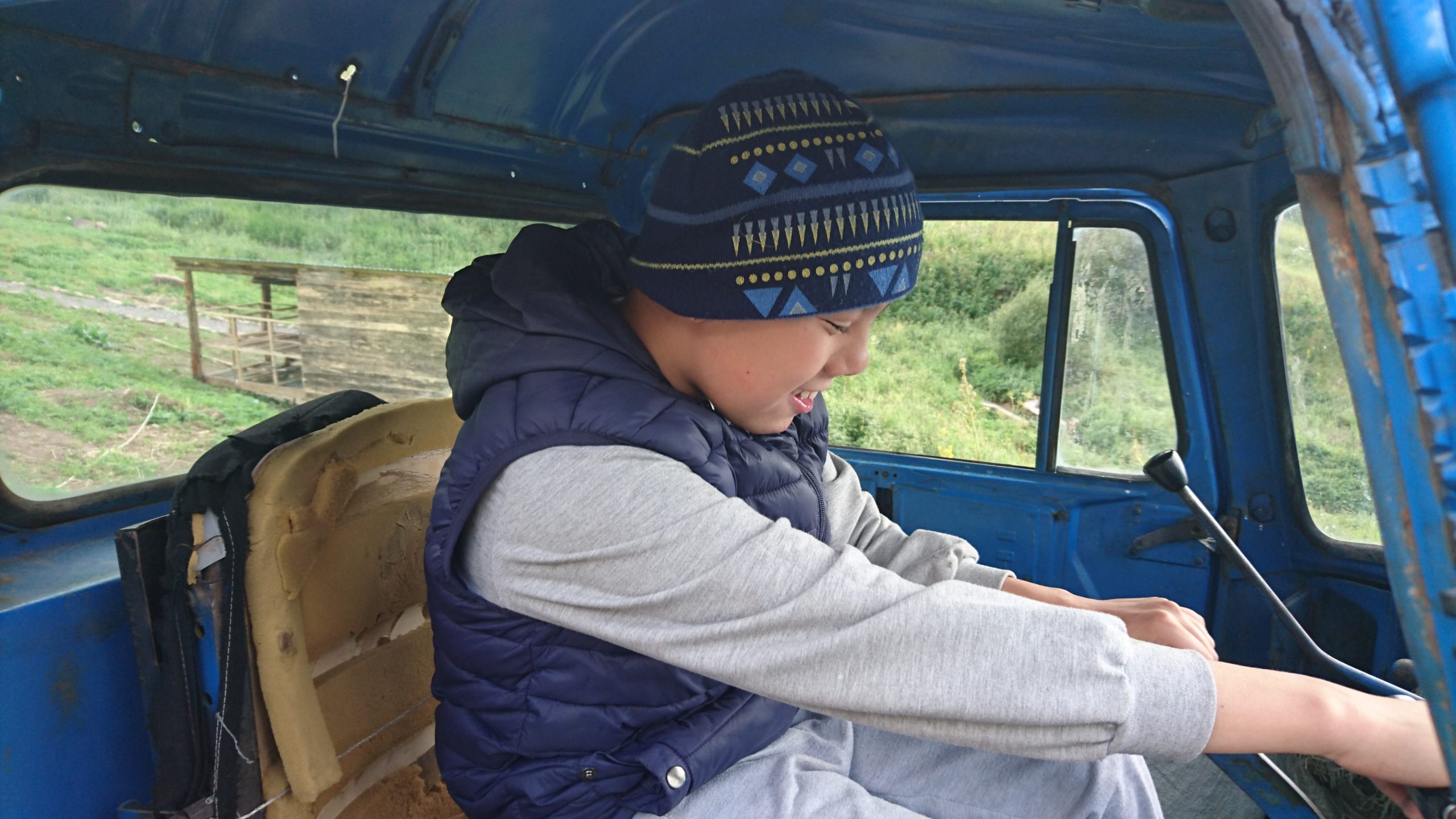
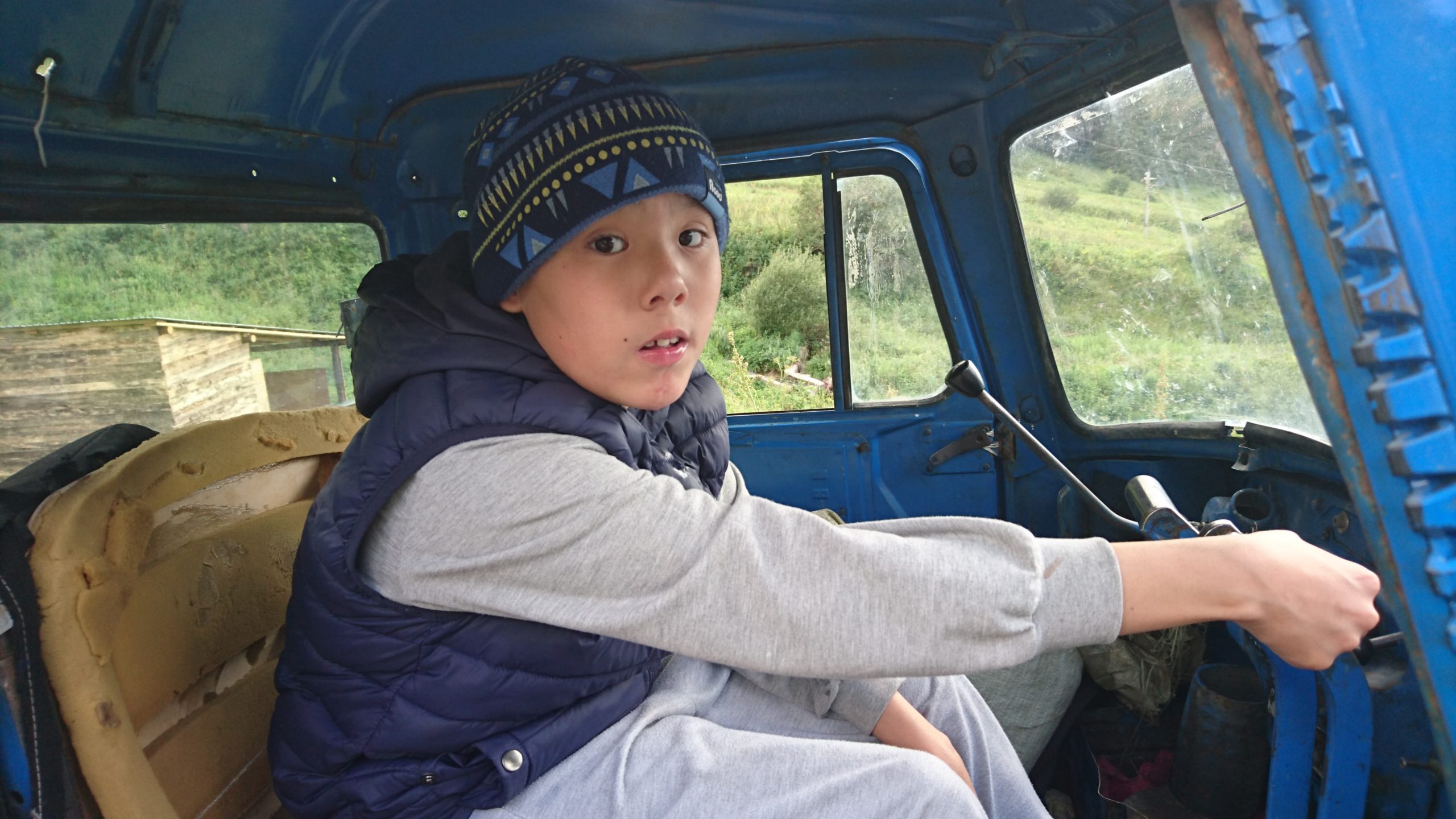
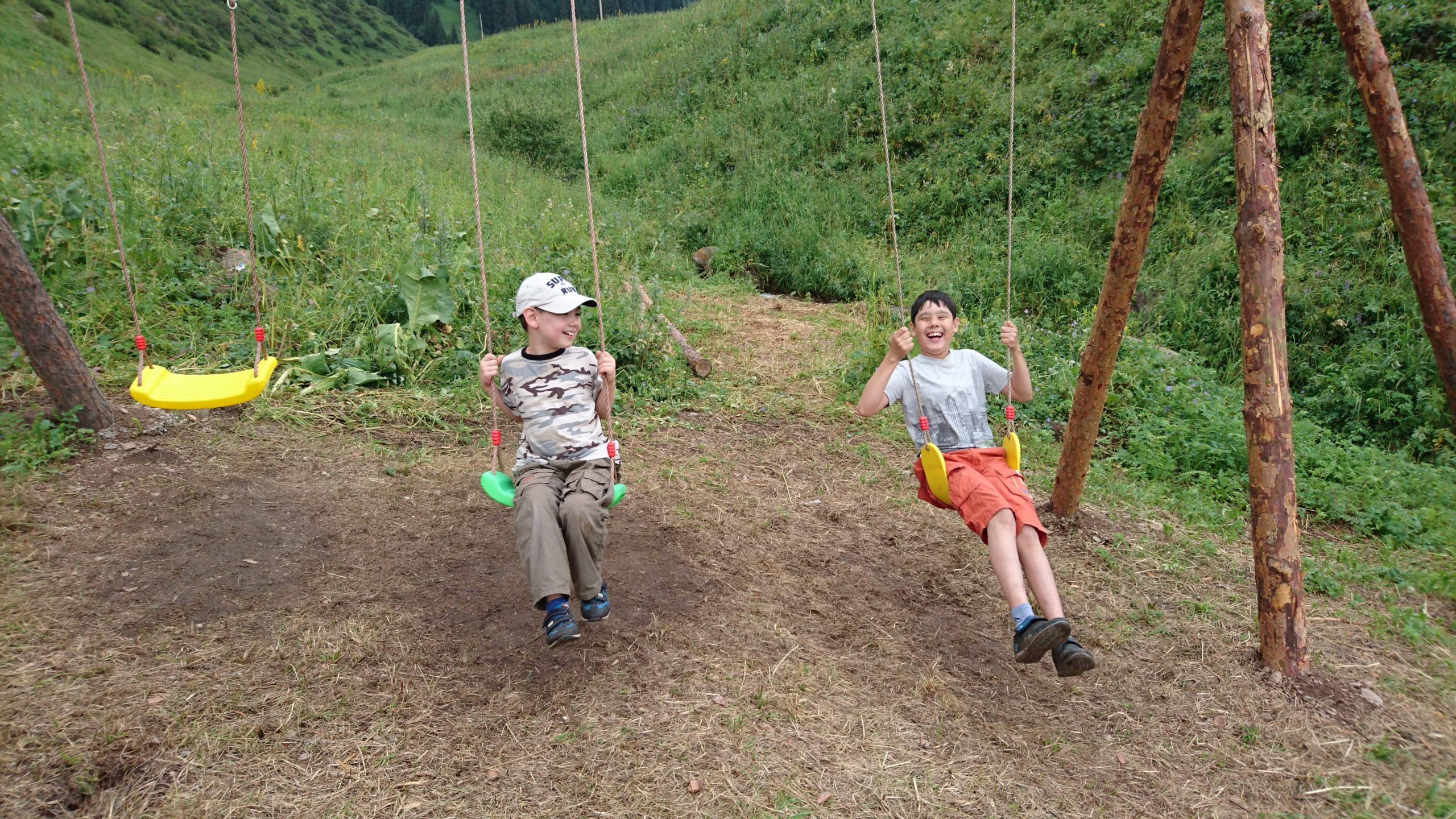
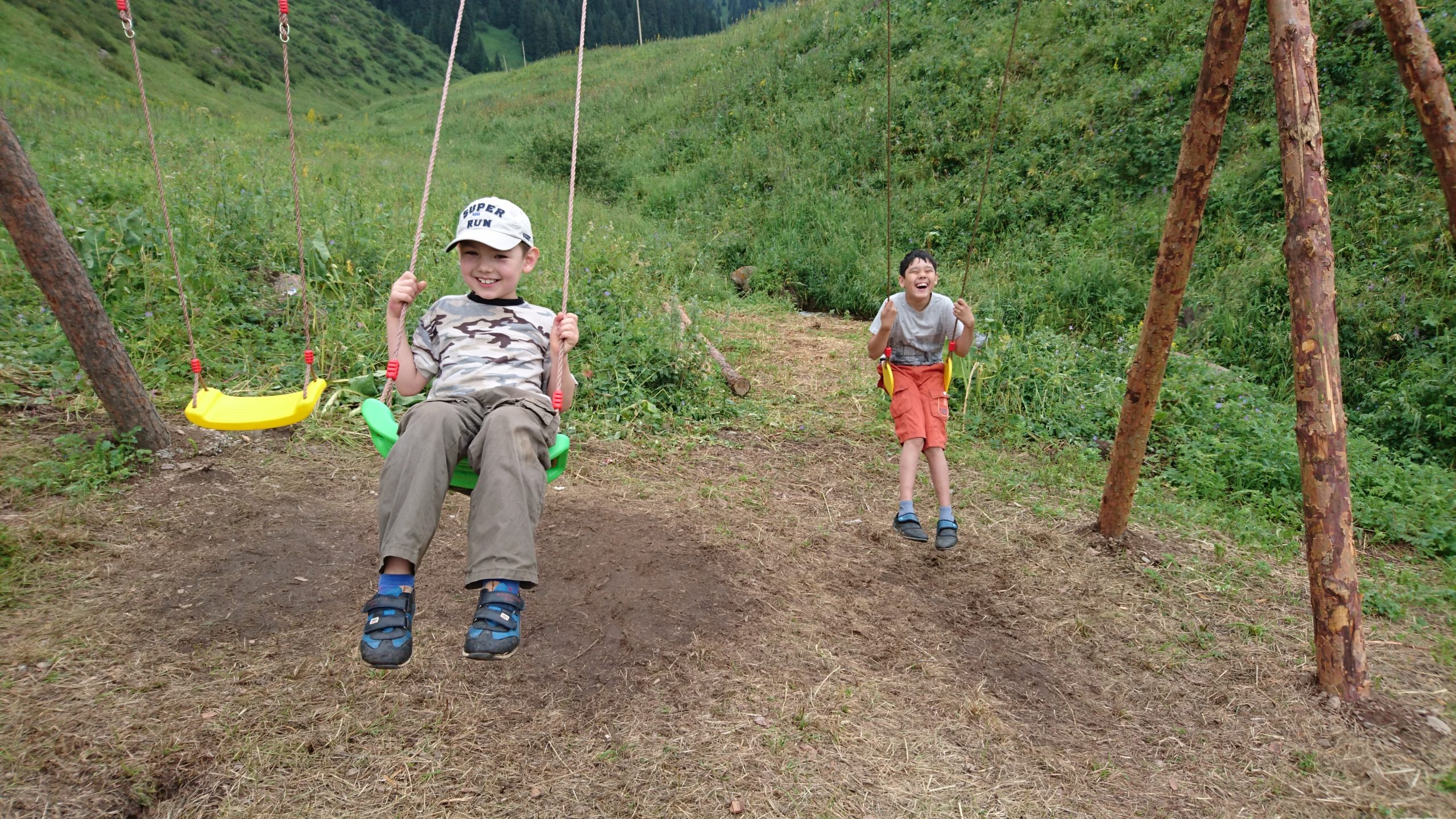 Arsen (at left) and Arthur (at right)
Arsen (at left) and Arthur (at right)
He came here with his aunt (who remained during the entire stay but who did not interfere – for example, by opposing something) and she was very depressed at the beginning, about the future of his nephew.
In fact, there was no problem with this boy. He is “different”, for sure, but he can manage to do his own life with his own way. He even surprised me, when we went in the city one day, by managing to convince an employee of a recreational equipment to let him enter without paying (he was alone with me, since a few minutes). Even his aunt has been astonished (she arrived later).
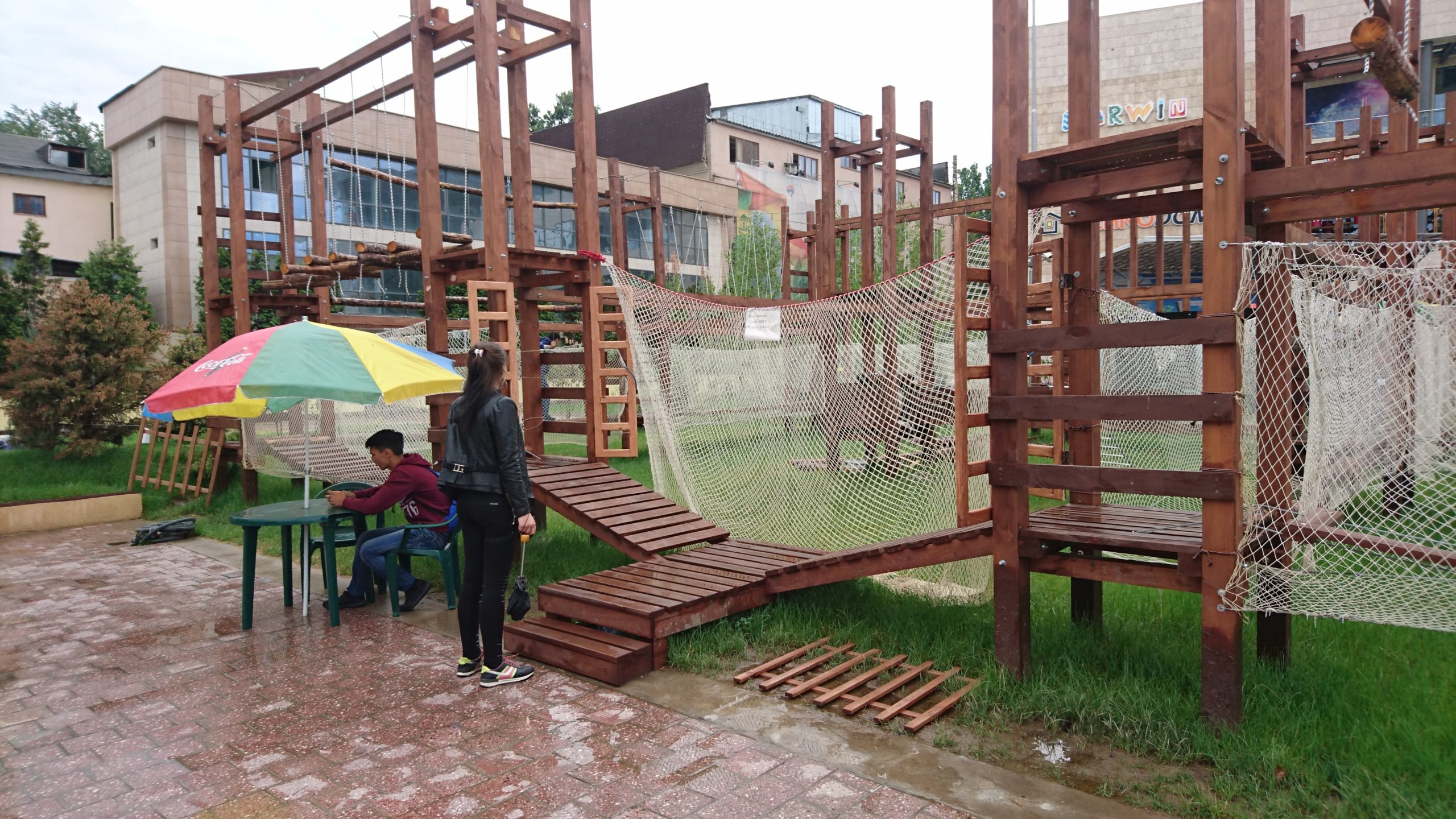 Arsen managed to convince the cashier of this thing to let him enter without paying.
Arsen managed to convince the cashier of this thing to let him enter without paying.
(He did it so quickly that we did not even have the time to consider paying.
I was with him, his aunt and Adiyar, in the city of Almaty.)
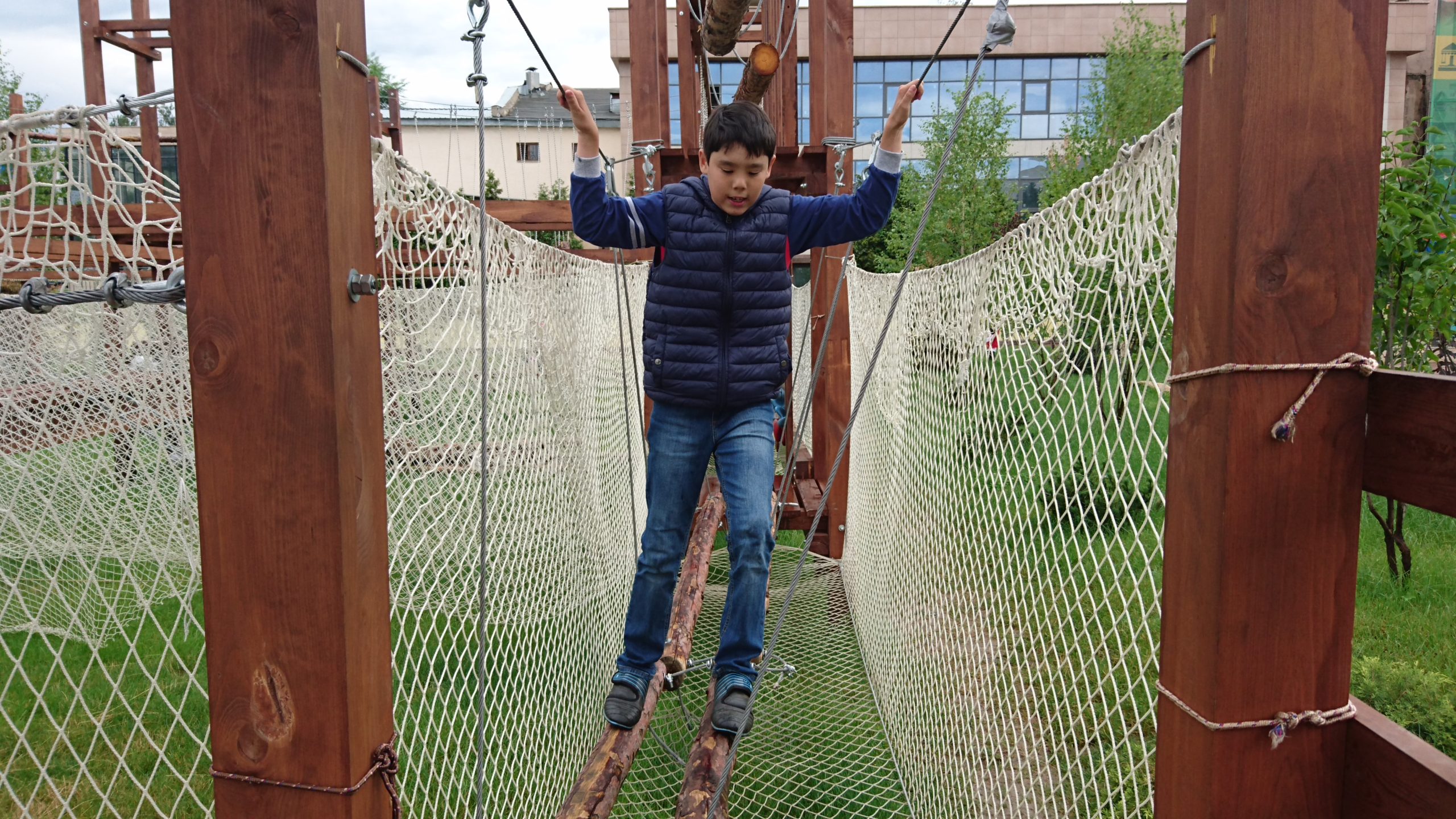 It is good to make many different experiences.
It is good to make many different experiences.
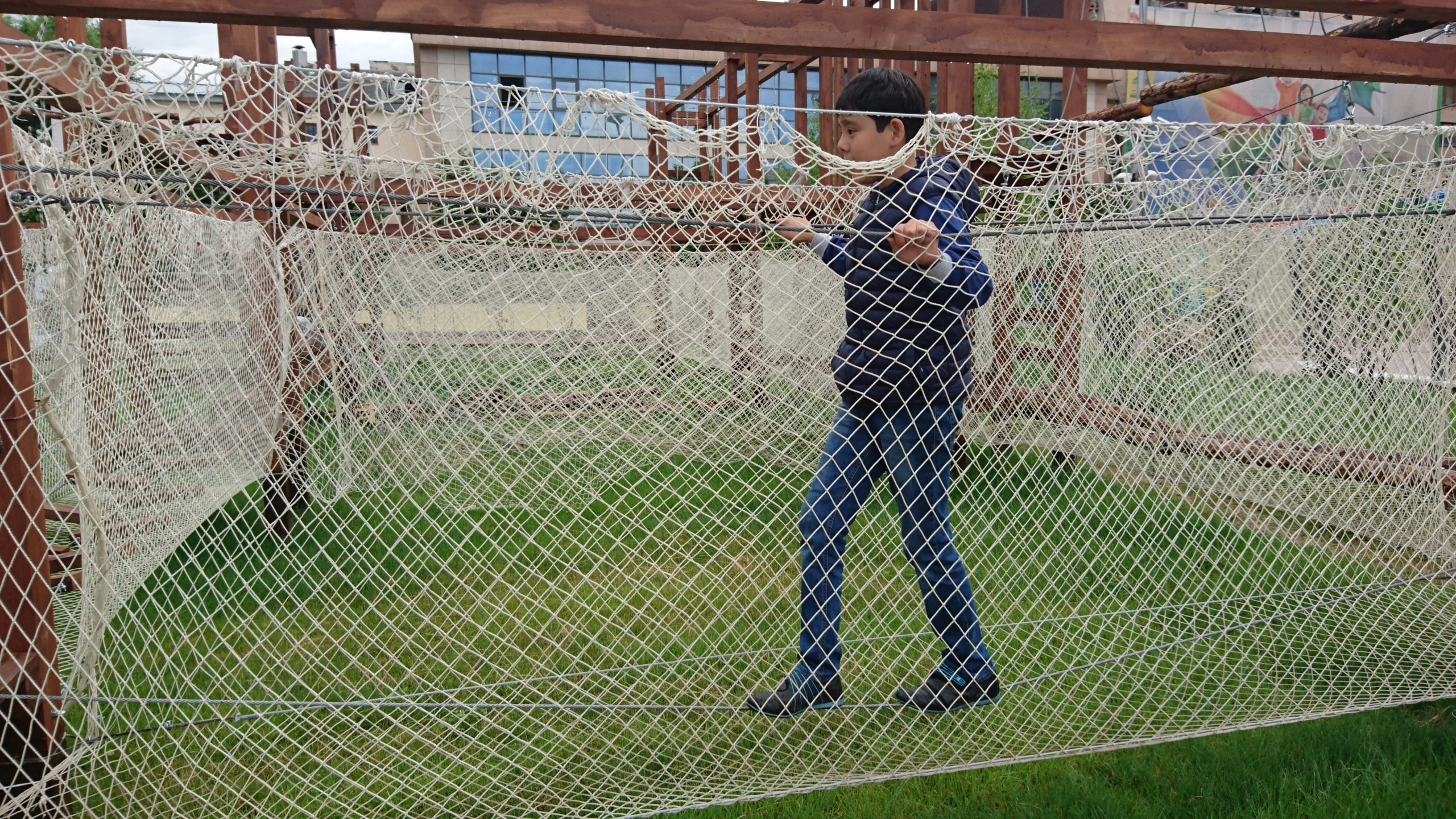
When you stop considering that people are “deficient” and treating them “accordingly” (with a “superior” mindset), then the good surprises can start…
At first, his aunt was thinking only about things like “disease” and “shame”.
But during the camp she changed her mindset completely, by seeing her nephew under a new angle, by seeing the other autistic kids and their progresses, by seeing the qualities of Arsen, by seeing also my own example, and the example of Adiyar (read further).
The biggest problem of Arsen is -not surprisingly- the stupid mocking and bullying behaviour of the other kids at school. I tried to do my best to explain him that he shouldn’t pay attention to all that, and how he can avoid to be a victim of the judgement of others (especially if they are stupid…), by simply understanding that such judgements are worthless and thus that they can and should be ignored. I don’t know if he really got it (he is young) but his aunt certainly did, and I trust that things will go better for this family.
He was also very happy to play with Arthur (and vice-versa).
It was nice to see these “two autistic friends” enjoying life, the summer, swinging, laughing together.
Arsen (at right) and Arthur (another autistic child, at left), swinging
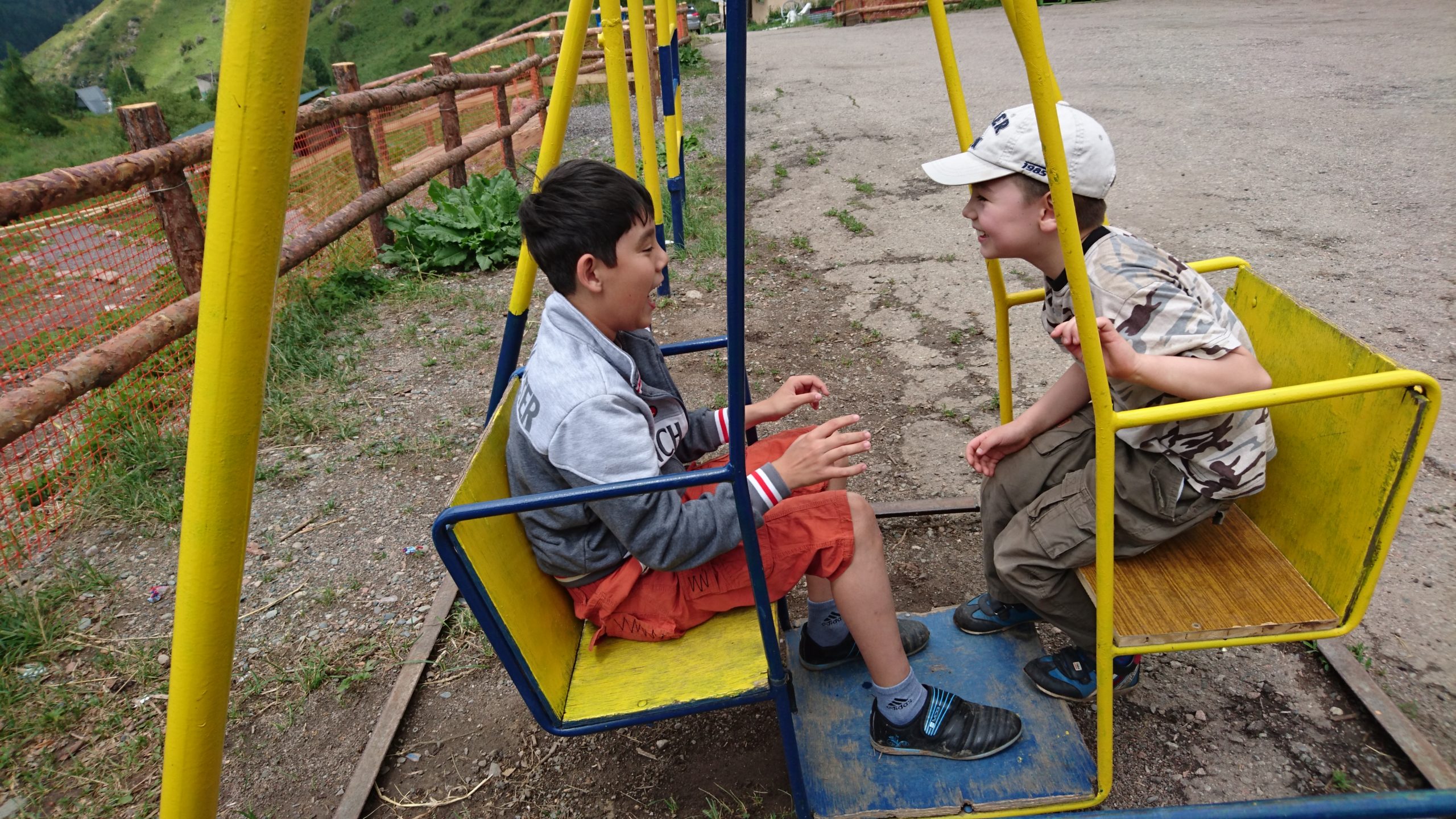 Arsen (at left) and Arthur (at right)
Arsen (at left) and Arthur (at right)
(They quickly became good pals, and the idea of criticizing of judging their “different” behaviour was simply not existing there, in the atmosphere of the camp.)
If Arsen or Arthur had been the only autistic child around, probably he would have felt lonely or “like a black sheep”, as I explained above. And also if there had been only autistics in the camp (and, why not, nurses… (to give medicines ! which were not even “thinkable” with us)) then the atmosphere would have been less fun, and rather stressful: it would have been the usual segregated and “defectological” approach, and it is so easy to understand that it cannot work…
How would children (or adults) thrive in this kind of environment? It doesn’t make sense.
You have to let things happen naturally, respect the nature of the person, which does not prevent from educating, but educating without “formatting”.
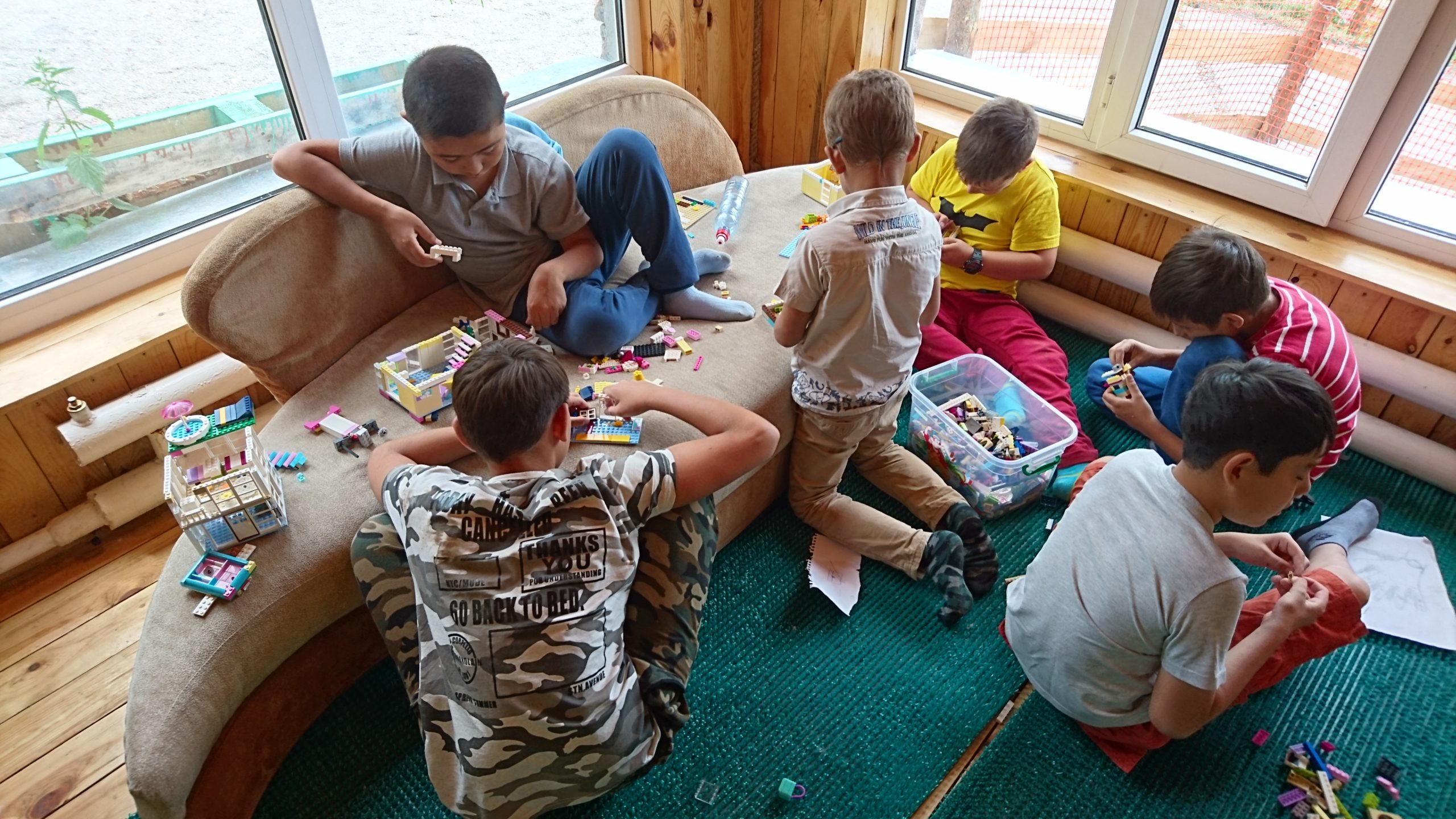 Arsen (at the bottom right corner)
Arsen (at the bottom right corner)
And recently we have been told that Arsen wants to come back next year. He is right !
Indeed, it is easy to understand that for a child who is usually rejected and mocked, this 10-day stay where he was neither rejected nor even “ostensibly accepted” but simply free to be himself, and in addition to having friends, was almost “heavenly” (with the added bonus of the whole natural environment, perfectly consistent with our natural approach, or vice versa).
